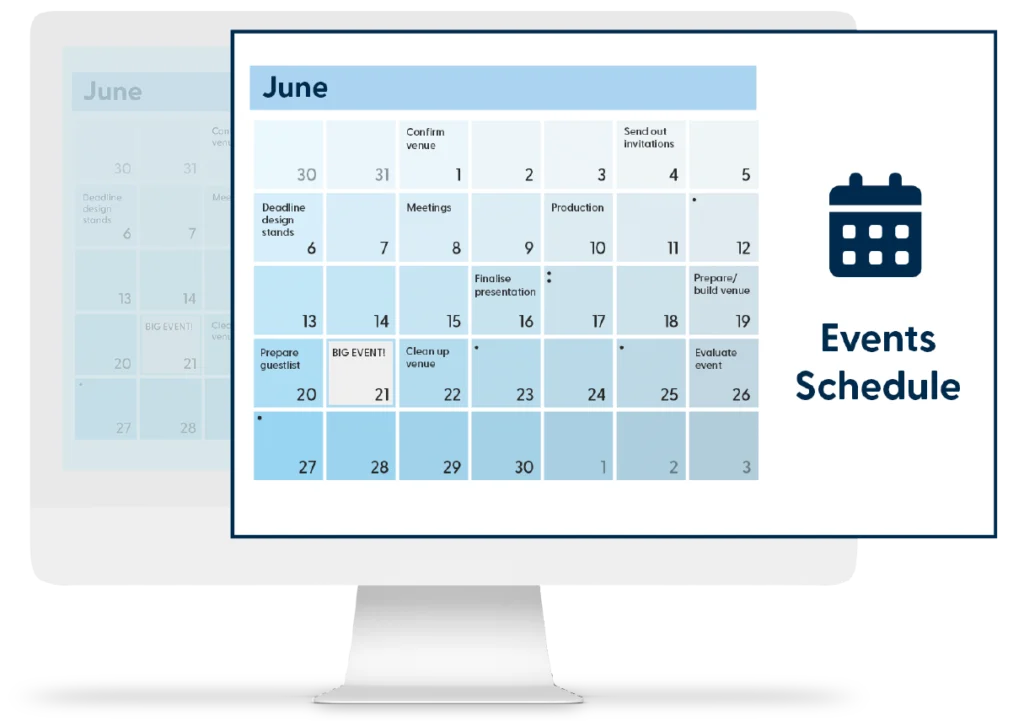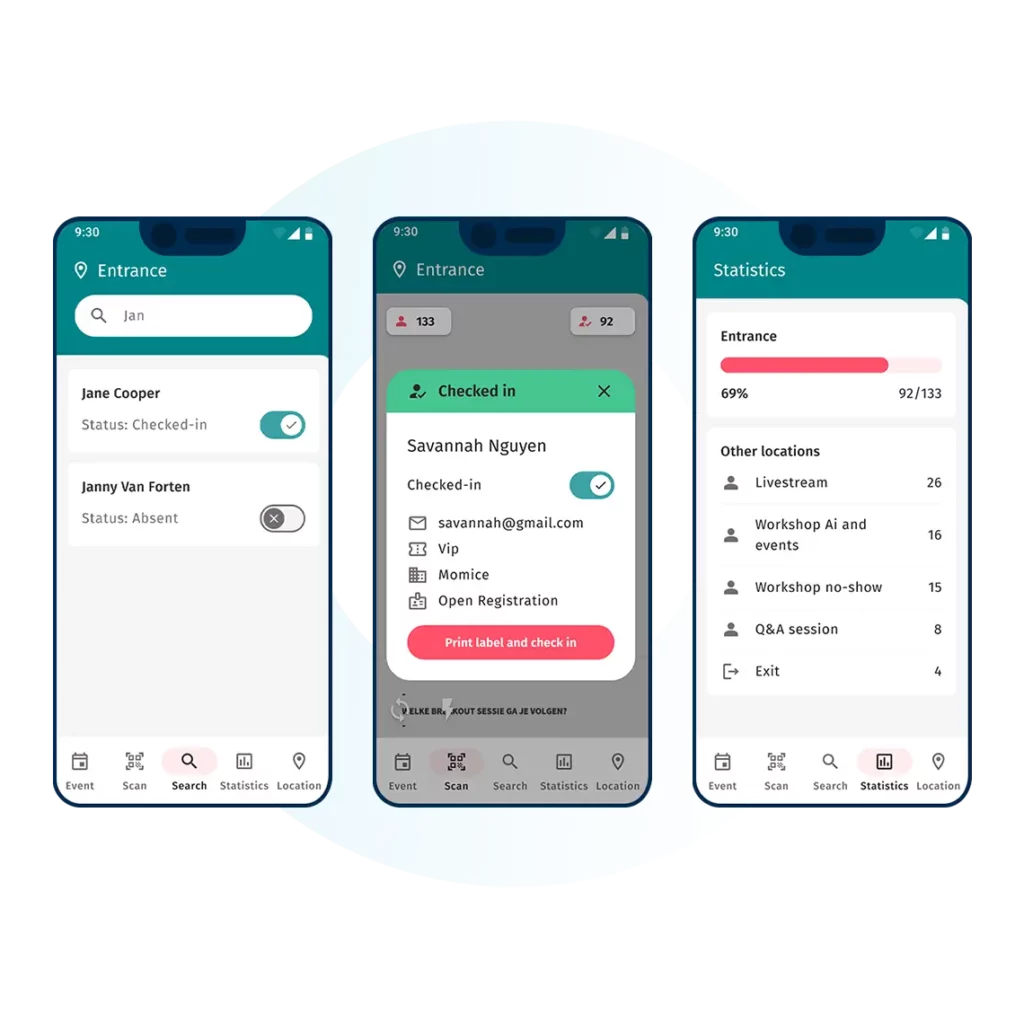Anyone who regularly organises business events knows how challenging it is to keep everything running smoothly. Preparation and the day itself can quickly become chaotic.
Whether it’s a physical, online or hybrid event, you deliver a live experience, and everything must be perfect! It takes a lot to provide an enjoyable experience for large groups of people, where different vendors and technologies must work together seamlessly.
At Spotler, we want to help event professionals organise their events to run as smoothly as possible. That’s why we share the most common causes of chaotic events, based on our experiences and those of hundreds of event professionals. So you can recognise and avoid these pitfalls sooner!
Organise an event with 1 month’s notice? Sure!
Many organisations operate without an annual event calendar, resulting in ad hoc requests for events that sometimes have to take place within a month. This leads to late invitations, limited availability of venues and vendors, and ultimately a lower quality and reputation of the event. To avoid this, suggest rescheduling ad-hoc events or finding an alternative.
Tip: Several months in advance, take stock of planned events for the coming year and share this schedule with your colleagues to minimise spontaneous requests.

Failure to set clear objectives
An event without a clear purpose creates chaos in preparation and organisation. Filling out the program takes longer, it is difficult to test new ideas, and speakers have no foothold for their stories.
Tip: Formulating a SMART objective based on the behaviour you want to see from the target audience gives the people organising it a lot of direction and peace of mind. Clear objectives make it much easier to plan a program, find suitable speakers, and communicate the value of the event both internally and to your intended audience. Make sure every stakeholder is included in these discussions from Day One.
Choose inexperienced speakers and let them create their presentation slides themselves
Giving a good presentation is challenging, and poor preparation or nerves can lead to walkouts, non-working videos and unclear slides. This can disrupt your event and make participants feel like their time is being wasted.
Tip: Select speakers carefully; they represent your company. Brief them well on the core message and provide a presentation template in the corporate style. Review as much of their presentation in advance as you can, keep track of time and avoid too much text and stock images. These steps are essential, even with experienced speakers!

No need to send any reminders. The audience will show up anyway!
It’s costly and frustrating when fewer people attend your event than expected. You’re competing with full calendars, so stay current and ensure information about your event is easy to find.
Tip: Communicate regularly, without overloading with unnecessary details. Make sure location, times, and program are always precise and up-to-date. Offer a well-organised event website and clear emails, and always emphasise why they should not miss this event.
Not many people are signing up; let’s invite a new audience group. Then we’ll have a full house!
It’s easy to focus solely on audience numbers when organising an event. But you’re better off making sure you have the right people. If you suddenly invite a different audience, the whole event changes, from program content to expectations and goals. This creates a lot of anxiety, especially if registration is already underway.
Tip: Determine in advance what success looks like in terms of both attendance and ROI. If you pitch to FTSE100 CEOs, 6 or 7 attendees might be enough to reach your ROI target. If your ROI target is high and your audience comprises small businesses, you may need 100 or more delegates.
If your cost per attendee is too high, consider cancelling, sharing the content differently, or finding a smaller venue. Another option is to postpone the event, which will give you more time to test the content and gauge interest.
Never mind that dress rehearsal
At an event, the program is often performed for the first time and only once, and the first time is rarely the best. Therefore, a complete run-through and dress rehearsal are essential. This takes time, but it significantly improves your event because you can clearly see what works and what doesn’t during rehearsal so that you can make targeted adjustments.
Tip: Several days before the event, plan a walk-through with all speakers and presenters. Then do a dress rehearsal with everyone on stage the day or morning before the event.
Check all your visitors in on printed-out lists
It’s important to know who attended your event and who didn’t. If you don’t do that with professional software, you’ll end up with a manual process of printed lists, where you can easily make mistakes, and long queues quickly arise. That’s not the warm welcome you want to offer your guests, right?
Tip: Find professional event software to check in your attendees and possibly print badges quickly and easily on location. At the venue, make sure someone is there who knows the system and can also come to the rescue if something goes wrong. Spotler Events offers a simple, fast and robust solution!

Any free tool will do for audience interaction
An interactive event has many benefits! But make sure the user experience is easy and that it works well. Is the venue’s internet and or Wi-Fi powerful enough? Can the interaction tool handle so many participants at the same time?
Tip: Events are serious business; you need serious tools! So look for software vendors that have shown they can handle large groups of interactions. Make sure it works at all times!
A backup plan? Nah, we know what we’re doing
“No plan survives contact with reality” has stuck around as a saying for a reason! So make sure you are prepared and have a backup plan lying around. You want to avoid having to improvise during an important event. Live events are exciting enough as they are!
Tip: Identify potential problems in advance and don’t rely solely on vendor promises. Consider Internet outages, videos, audience interaction and other technical issues. Plan how to manage visitor flow and what to do in emergencies. Discuss alternatives with vendors and ensure everyone knows what to do if something goes wrong.

Networking event? Book a DJ and a saxophonist for maximum spectacle
If you want your attendees to network effectively, setting up your event is crucial so that conversations can occur easily. Loud music from a DJ or band doesn’t help with that.
Tip: Choose entertainment that fits the purpose of your event and your target audience. In doubt? Then consult a specialist in this field to create the right atmosphere.
Actually, I’d rather my events weren’t chaotic…
Good call.
Spotler provides an all-in-one events platform for managing invites, reminders, check-ins, and follow-ups. You can also tap into our experience helping hundreds of event organisers so that you can get the strategic elements right.
Ready for a closer look?

